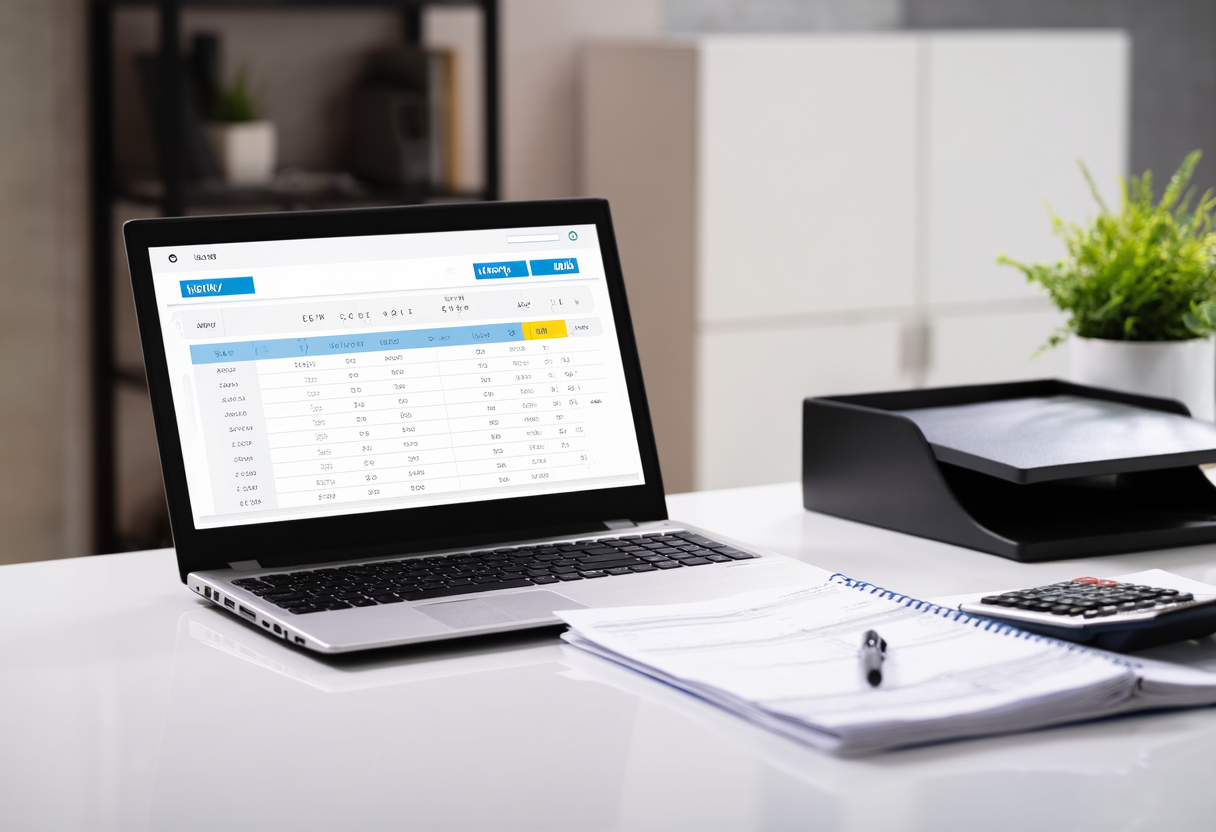Top 5 Accounting Software for Small Businesses in 2022!
For small businesses looking to improve their financial management, the right Accounting Software is crucial. This article highlights the top five Accounting Software options available, focusing on features, affordability, and user reviews. Each solution is designed to meet the unique needs of small enterprises, helping them streamline their accounting processes. Make informed decisions by understanding key functionalities and benefits of these applications.
Why Small Businesses Need Accounting Software
Small businesses often operate on tight budgets and with limited resources, making efficient financial management critical. Accounting Software offers a robust solution to streamline operations and ensure timely compliance with financial regulations. By automating routine tasks such as invoicing, payroll, and expense tracking, these tools free up valuable time for small business owners to focus on growth strategies and customer engagement. Moreover, accurate financial reporting becomes accessible, allowing for informed decision-making. Without a doubt, proper utilization of Accounting Software significantly reduces the risk of errors that can lead to costly penalties. Consequently, investing in a reliable accounting solution is not just advantageous but essential for today's competitive small business landscape.
Criteria for Selecting Accounting Software
When selecting Accounting Software, small enterprises should consider several key criteria. First, ease of use is paramount; intuitive interfaces can make a significant difference in employee buy-in and productivity. Second, affordability is critical, as many small businesses must stick to strict budgets. Third, scalability plays an important role; software that can grow as the company expands ensures longevity and continued utility. Additionally, features such as mobile access, customer support, and integrations with other software systems should be scrutinized. Customer reviews and testimonials provide invaluable insights, shedding light on real-world usability experiences. Ultimately, these factors work together to facilitate the acquisition of the best Accounting Software suited to any small business goal.
The Top 5 Accounting Software Options
1. **QuickBooks Online**: Renowned for its user-friendly interface and feature-rich platform, QuickBooks Online excels at expense tracking, invoicing, and financial reporting. It offers the versatility that small businesses need to manage their accounts from anywhere. 2. **FreshBooks**: FreshBooks focuses on invoicing and project management, ideal for freelancers and service-based industries. Its intuitive design simplifies tasks, allowing users to get paid faster. 3. **Xero**: Known for its robust inventory management and flexible pricing plans, Xero can support various business sizes. Its user-friendly dashboard provides a clear view of financial health. 4. **Wave**: This is a great free option for small businesses needing basic accounting features. Wave offers invoicing, receipt scanning, and expense tracking—all without a monthly fee. 5. **Zoho Books**: Part of the Zoho suite, Zoho Books integrates seamlessly with other Zoho applications, making it a perfect choice for businesses already using the ecosystem. Its comprehensive features cater to diverse business needs, from invoicing to tax compliance.
Benefits of Using Top Accounting Software
Implementing quality Accounting Software yields numerous benefits for small enterprises. Not only does it enhance productivity by automating repetitive tasks, but it also fosters financial accuracy and oversight. Business owners can analyze cash flow trends and expenditures in real time, empowering them to adjust strategies proactively. Such software often includes essential features that facilitate tax preparation, significantly minimizing stress during tax season. Additionally, accurate record-keeping is enhanced, protecting businesses during audits. Ultimately, choosing the right Accounting Software translates to savings in time, money, and resources, allowing small businesses to thrive in competitive environments.
Conclusion
In conclusion, finding the right Accounting Software is a game-changer for small businesses aiming to enhance their financial management. By evaluating options based on user-friendliness, cost-effectiveness, and scalability, small business owners can make informed selections. Embracing technology not only simplifies accounting processes but also positions businesses for future growth and success. With the top five options highlighted in this article, small enterprises are now equipped to take proactive steps toward optimizing their financial practices.
